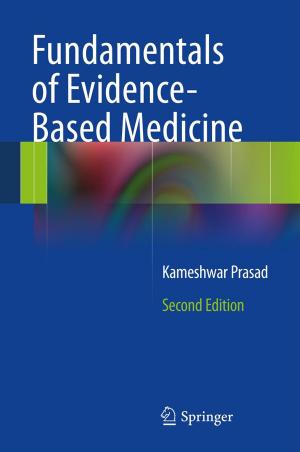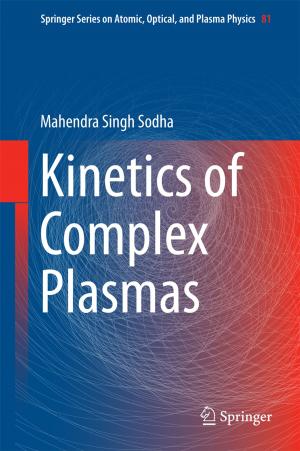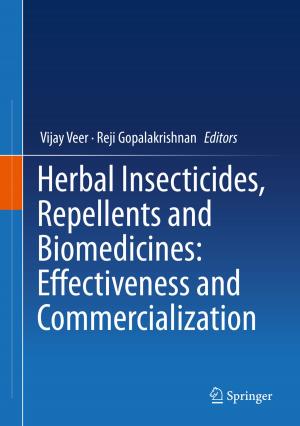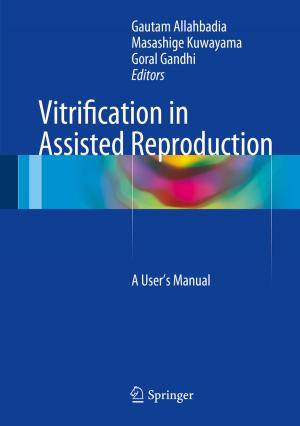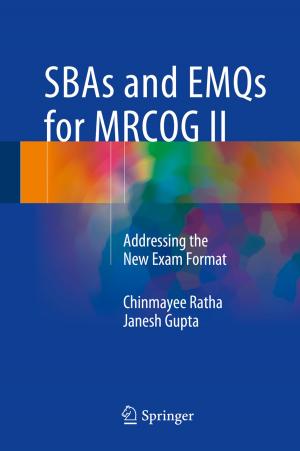Perspectives in Inflammation Biology
Nonfiction, Science & Nature, Science, Biological Sciences, Cytology, Other Sciences, Molecular Biology| Author: | Ena Ray Banerjee | ISBN: | 9788132215783 |
| Publisher: | Springer India | Publication: | October 16, 2013 |
| Imprint: | Springer | Language: | English |
| Author: | Ena Ray Banerjee |
| ISBN: | 9788132215783 |
| Publisher: | Springer India |
| Publication: | October 16, 2013 |
| Imprint: | Springer |
| Language: | English |
“Perspectives in Inflammation Biology” outlines detailed studies using preclinical murine models in Inflammation. The book is meant for academicians, industry persons, research scholars and students alike. The detailed perspective for a beginner and the exhaustive methodologies and analyses outlined, for the veteran researcher, makes this book a unique link between someone who is thinking of embarking on a study of inflammation and one who is delving deep into this area of specialization. The book deals with asthma and allergy as specific disease areas of inflammation of the lung, aseptic peritonitis as a disease of systemic inflammation and details how each role player in its pathophysiology has a unique niche of activity. Data acquisition, sequentiality and analyses in context demonstrate how each role player is validated systematically to become a target for drug discovery. Methods and models used in the course of my work and their relevance will demonstrate to the researcher how a study can be developed from an idea. Further into a researcher’s ongoing work, this book is meant to stimulate new questions and pave ways for better dissection of a phenomenon. The highlights of this book are the detailed tables tabulating sub species of immune cells, their inflammatory recruitment indices, their translation into tissue-to-tissue traffic of the inflammatory stimulus and the delicate interplay of resident structural cells, cells recruited from circulation, their feedback poiesis in bone marrow, their instruction in the lymphoid organs and tissues as well as the non-cellular mediators synthesized from corresponding genetic instruction. The book shall definitely help students and researchers how a disease can be simplified from its complex ramifications and network of implications and put back into perspective and the whole thing falls into place without an intimate understanding of the mechanism and the compelling circumstances that causes a disease, a drug hunter cannot hope to begin her quest. To find the “Achilles’ heel” and effectively neutralize the enemy!
“Perspectives in Inflammation Biology” outlines detailed studies using preclinical murine models in Inflammation. The book is meant for academicians, industry persons, research scholars and students alike. The detailed perspective for a beginner and the exhaustive methodologies and analyses outlined, for the veteran researcher, makes this book a unique link between someone who is thinking of embarking on a study of inflammation and one who is delving deep into this area of specialization. The book deals with asthma and allergy as specific disease areas of inflammation of the lung, aseptic peritonitis as a disease of systemic inflammation and details how each role player in its pathophysiology has a unique niche of activity. Data acquisition, sequentiality and analyses in context demonstrate how each role player is validated systematically to become a target for drug discovery. Methods and models used in the course of my work and their relevance will demonstrate to the researcher how a study can be developed from an idea. Further into a researcher’s ongoing work, this book is meant to stimulate new questions and pave ways for better dissection of a phenomenon. The highlights of this book are the detailed tables tabulating sub species of immune cells, their inflammatory recruitment indices, their translation into tissue-to-tissue traffic of the inflammatory stimulus and the delicate interplay of resident structural cells, cells recruited from circulation, their feedback poiesis in bone marrow, their instruction in the lymphoid organs and tissues as well as the non-cellular mediators synthesized from corresponding genetic instruction. The book shall definitely help students and researchers how a disease can be simplified from its complex ramifications and network of implications and put back into perspective and the whole thing falls into place without an intimate understanding of the mechanism and the compelling circumstances that causes a disease, a drug hunter cannot hope to begin her quest. To find the “Achilles’ heel” and effectively neutralize the enemy!



